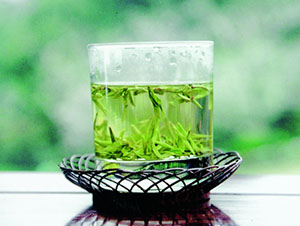“Wow, look at that hair! Is that a boy or a girl?”
I didn’t turn towards the tourists, partly because I was embarrassed and partly because I didn’t want to embarrass them by revealing that I knew Mandarin. But their words suddenly made me very aware of my unruly afro and androgynous look. It’s a strange feeling, knowing that somebody is scrutinizing your body, eyes searching to figure out what this alien creature is. Some feature must have given me away, because after a beat, a woman exclaimed, “It’s a girl!” and the group broke into peals of laughter.
In the U.S., my large afro was my grandmother’s sorrow and the delight of white people in supermarkets. Its size attracted some attention at home, but in Taipei, the comments and stares followed me everywhere. On my morning walk to Chinese class, commuting adults stared at me and groups of kids would pause, mouths open in an O. Initially, the stares combined with the sticky morning heat made the small journey feel endless. For someone as shy as myself, passing under each person’s gaze felt like being put through a gauntlet. Going out felt impossible, and I would retreat to my dorm room as soon I could. Socializing was very difficult when going outside required so much mental energy and my body constantly felt as though it was being stared at to figure out what I was.
But later I found that my hair, the very thing that made me anxious about being around people, was what would get me to fully experience Taiwan. Eventually, hunger (the greatest motivator) and the need for interaction pushed me to go beyond the wordless exchanges of the 7-11. One day, I got up the courage to order food after school (“Could you kindly give me a shaved ice?”). Since she already had my attention, the shopkeeper peppered me with questions about my hair. “Is it real or is it fake?” “Can I take a picture with you?” In the U.S., the frequency of those questions used to irritate me. But by the time I had been in Taiwan for awhile, hungry for social interaction due to my shyness, I started to grab at every warm question like I was starving and they were bread crusts. Every time I felt the surge of pride in understanding and responding to a question about my hair, an unfamiliar one would pop up. “What do you use on it?” “How long does it take?” The momentary embarrassment at not understanding faded away, and I became adept at smiling, nodding, and gesturing to attempt to communicate until I could go home and, hours later, figure out what was being asked of me.
Handling those simple questions gave me the confidence to continue conversations with the shopkeepers and people that I met. Soon people began to ask me, “What are you doing here?” and “How do you like Taiwan?” In the beginning, I wouldn’t have known how to respond. All I knew of Taiwan was my bedroom and the stares of strangers.
After a month of being there, something changed for me. I stopped seeing the scrutiny and questions about my hair as a hindrance and began to see how those blunt questions and observations were simply gentle curiosity that was rooted in warmth– a warmth that I had mistaken as invasive. A Taiwanese friend confirmed that the body is viewed differently in Taiwan, and that pointing out physical differences was not meant to be hurtful; it was simply another topic of conversation, especially between Taiwanese people who know each other well.
When that realization occurred, Taiwan expanded for me. After we covered the topic of my hair, I had conversations with shopkeepers about their children and how much better Taiwanese food is than “American” cuisine. And one day on the subway, a young Taiwanese woman a couple of years older than me stopped me to ask about my hair. “It’s so cool!” The woman, Joanna, said it with a tone that allowed me to let my guard down, and after a short talk, we exchanged numbers before parting ways, making vague plans to see each other again.
Surprisingly, I mustered up the courage to follow through on those plans. To my even greater surprise, I made it to Shìlín night market without incident and was rewarded with a wave of relief upon seeing Joanna outside. We proceeded to spend the evening drinking 奶茶 (nǎichá–milk tea) and eating various fried foods while I told her the U.S. isn’t all it’s cracked up to be and she told me that neither was Taiwan, though I’m not sure we believed each other. For Joanna, it probably felt uneventful. For me, I was ecstatic to connect with someone and make them laugh intentionally, for once.
After that, we spent many evenings indulging in 臭豆腐 (chòu dòufu–stinky, fermented tofu) and talking in the Taiwanese night markets. Our conversations taught me so much about this little island, and the topics ran the gamut from gay culture in Taiwan to politics to dating, inevitably returning to food. As I got to know Taiwan– the students, the trains, the bubble tea stands–I no longer noticed being stared at and no longer felt like an oddity. As anyone with curly hair can testify, proper conditioning takes time, and the cultural kind is no different.
